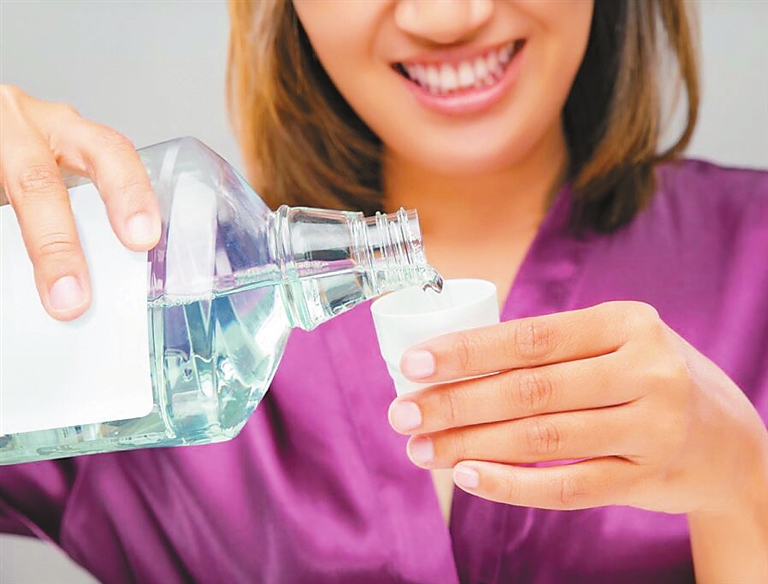
MOUTHWASH does way more than just freshen your breath upon waking up or after particularly garlicky meal — it’s also an important part of an effective oral hygiene routine for protecting your teeth and gums against gum disease as well as cavities. And while there are many different kinds of mouthwash, the best mouthwash for gums contains certain ingredients you should know about. Here, dentists provide a breakdown of what to look for in a mouthwash. There are several mouthwash formulations, and they’re intended for different specific uses, all of which promote oral health. “The purpose of mouthwash is to decrease microbes in our mouth, which helps with gum disease and cavities,” says, Sage Pollack, a dentist in Colorado, the United States. If the mouthwash in question is specifically for preventing cavities, for example, it likely has a mineralizing agent in it, such as fluoride. “Topical fluoride use in this way is known to improve the micro-hardness of the enamel, which makes it stronger and more resistant to decay,” says Joyce Kahng, a dentist in California. If the mouthwash is for gum disease or gingival inflammation, you want more of an antimicrobial-based mouthwash for your gums. In general, the best mouthwash for gums will have antimicrobial ingredients, like chlorhexidine, chlorine dioxide, or cetylpyridinium chloride. But keep in mind that mouthwash for gum health and cavity prevention are related: Tooth decay can, after all, lead to gum disease. And since both gum disease and cavities can cause bad breath, by using a mouthwash geared toward gum and teeth health, you’re really preventing future breath issues, as well. Dentists have warned against alcohol as an ingredient. While it is found in many formulations available, it can be abrasive on the gums, causing dry mouth and irritation. It can also remove some good-for-you bacteria in your mouth, which is actually detrimental to your gum and teeth health. What’s more is that the mouthwash should be alkaline. “When a mouthwash is alkaline, it will help neutralize the pH of the mouth,” says Dr. Kahng. On the pH scale, lower numbers are more acidic, while higher numbers are more alkaline. “The pH at which cavities form is 5.5, and our goal is minimize the amount of time our enamel spends in the lower pH ranges, as low or acidic pH’s will essentially dissolve enamel,” she adds. It doesn’t make sense for a product that is meant to restore enamel to be acidic, but many mainstream brands of mouthwash are lower than that pH threshold of 5.5, so it’s important to read labels and make sure you’re finding one that’s alkaline, which has a pH of 7 or higher. Any type of mouthwash with coconut oil in it can be healing for the gums. “This is a great alternative to harsh mouthwashes and helps lubricate the gum line instead of drying them out,” says Dr. Pollack. “Coconut oil is cleansing and hydrating at the same time, and it offers a more gentle approach to mouthwash when compared to some other astringent and harsh mouthwashes.” As for frequency of how often to use the best mouthwash for gums and teeth health, simply add it into your morning and evening routines. “Use mouthwash once or twice a day, after you brush and floss,” says Pollack. (SD-Agencies) | 
